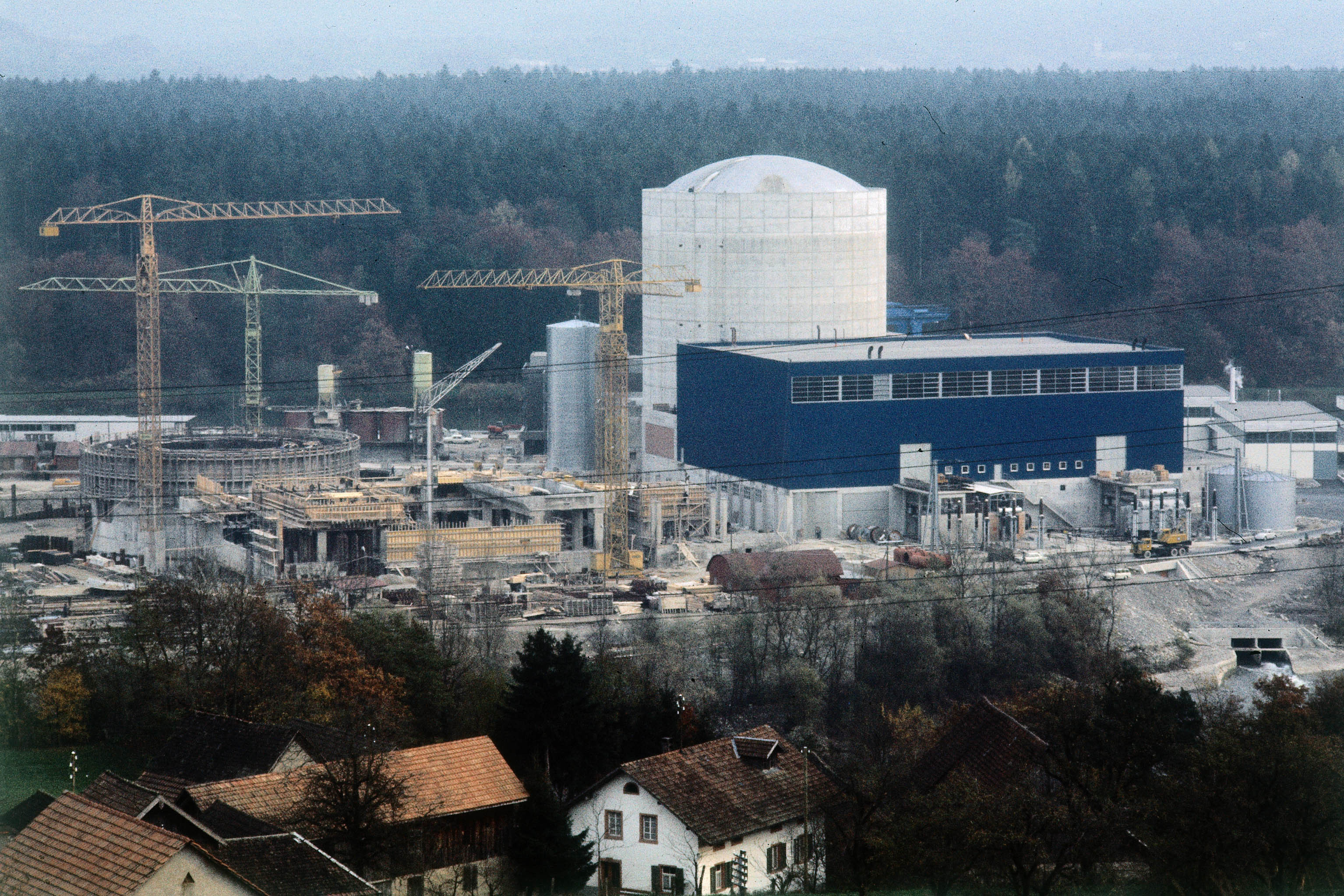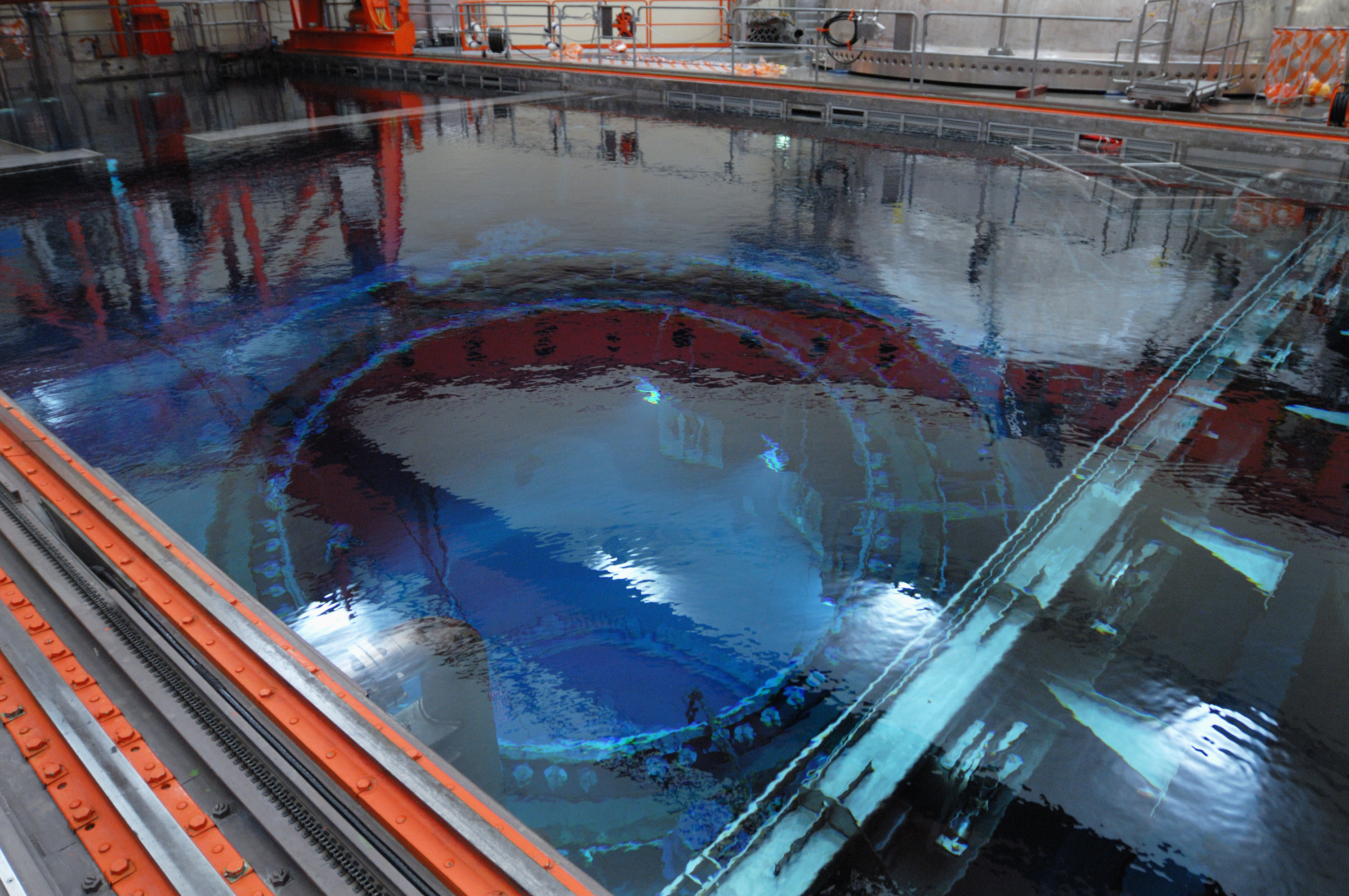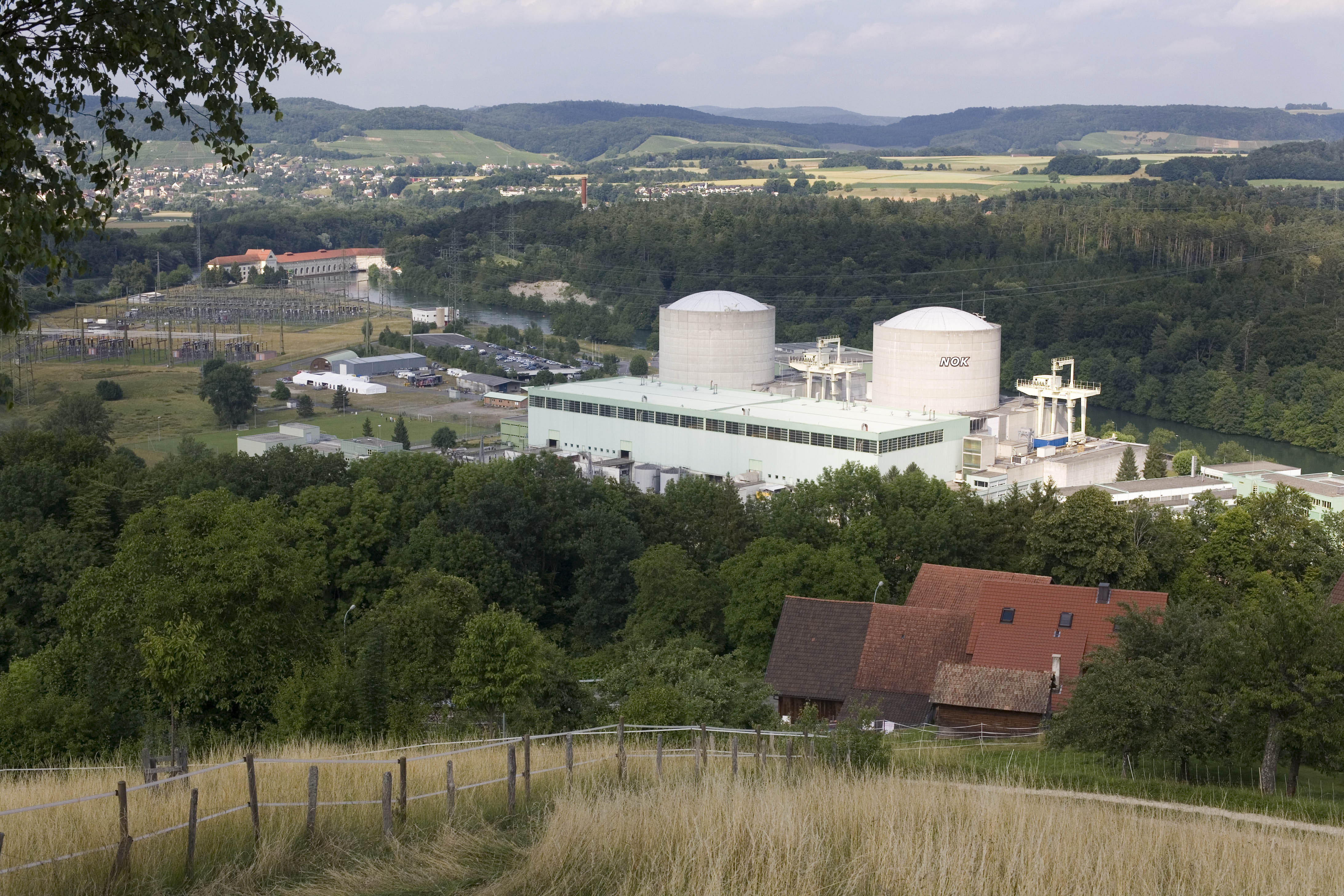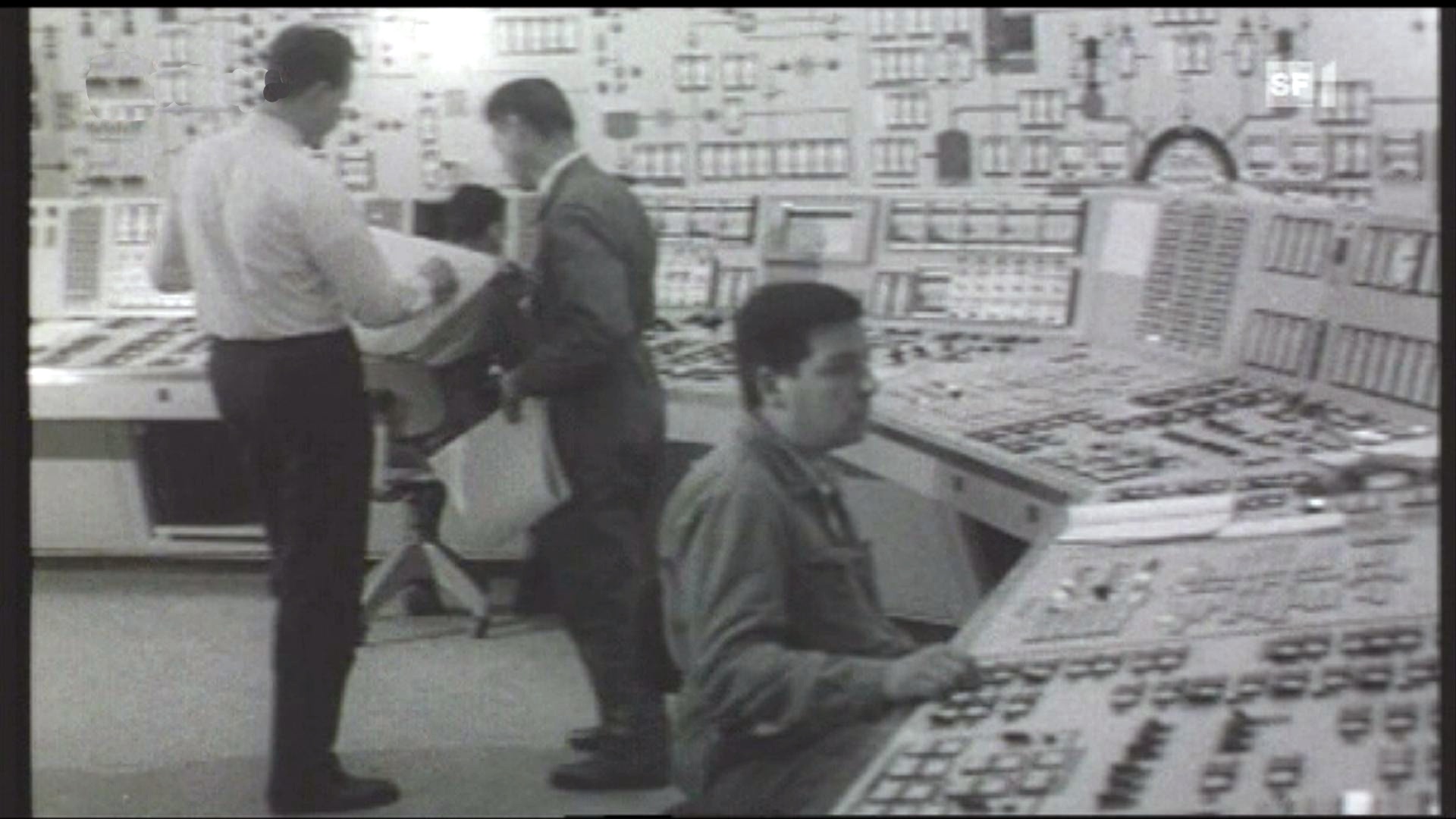Switzerland, a nuclear old people’s home

When the nuclear power station in Oldbury, Britain, was shut down on February 29, the one in Beznau took its place as the oldest operating nuclear plant in the world.
This record isn’t exactly something many Swiss are celebrating. Opponents of nuclear power are calling for Beznau to be shut down as well, but the government is against decommissioning plants early.
For Geri Müller, a member of the Green Party in canton Aargau, home of Beznau, the fact that the power station has been in operation since September 1, 1969, is “not a reason to celebrate, rather another reason to close it once and for all”.
Critics say safety issues prove Beznau’s time is up, claiming the emergency power supply is unreliable, the reactor cover has corrosion problems and the steel container has cracks.
“Beznau was designed to operate for 20 to 25 years,” Müller told swissinfo.ch. “A few things might have been revised in the meantime, but the chassis – to use a motoring term – has remained an old-fashioned Volkswagen Beetle and hasn’t become a modern version, a completely new type of car.”
He said it would make more sense for the plant’s owner Axpo to invest in renewable energy than to upgrade Beznau.
Top priority
“Safety has been and is Axpo’s top priority,” the energy supplier said, pointing to the SFr1.6 billion ($1.75 billion) invested in recent years and the SFr700 million still to come.
It added that, among other things, Axpo was investing in a self-sufficient emergency power supply.
Axpo said the reactor cover was intact but had been changed because signs of fatigue had been observed in similar constructions. The company also denied there were cracks in the container.
Energy use has steadily increased since the end of the Second World War.
In 1964, cabinet minister Willy Spühler warned the electricity industry “to turn towards the construction of nuclear power plants immediately”, as opposed to oil-fired power stations.
Spühler received support from nature protection associations as there was general resistance among the population to oil-powered stations.
At the end of 1964, approval was given to build a nuclear power station on Beznau, an island in the River Aare. In 1969, Beznau I started operation, with Beznau II coming along two years later and Mühleberg, canton Bern, in 1972.
Energy companies predicted an imminent energy shortage unless at least nine more nuclear power stations were built. Two were realised: Gösgen, canton Solothurn, in 1979, and Leibstadt, canton Aargau, in 1984.
Moratorium
In 1977, some 10,000 anti-nuclear protestors took part in an Easter march to Gösgen – the beginning of the powerful anti-nuclear power station movement in Switzerland.
There was so much opposition to the third project – Kaiseraugst, canton Aargau – that it was buried in 1988.
With perhaps the 1986 Chernobyl disaster in mind, in 1990 Swiss voters approved a ten-year moratorium on building more nuclear power stations.
In 1998, the cabinet decided on the country’s effective withdrawal from nuclear energy. But two years later, when the moratorium ended, the nuclear lobby called for more stations to be built. In 2003, voters rejected two people’s initiatives: one for nuclear-free energy, the other for another ten-year moratorium.
In 2005, the revised nuclear energy law entered into force. This left the nuclear option open and new stations could be subject to a facultative referendum. In February 2007, the cabinet decided to replace or upgrade the existing stations.
The spike in the price of oil in 2008, as well as the climate change debate, tipped the electricity debate in favour of new nuclear power stations, which were said to be clean and safe.
But in March 2011, the Fukushima disaster in Japan shocked the world. A magnitude-9 earthquake and tsunami knocked out reactor cooling systems at the Fukushima Daiichi nuclear plant, 240 km north of Tokyo, triggering meltdowns in three of the six nuclear reactors and radiation leaks. Japan faces a huge and costly radiation clean-up near the plant.
Four months later, the Swiss government declared it would phase out the use of nuclear power by 2034 by not replacing the country’s existing nuclear reactors when they reached the end of their lifespan.
Knee-jerk reaction?
The historical vacillations towards nuclear energy among Swiss voters and politicians go back to larger socio-political changes, according to Philipp Hänggi, head of swissnuclear, the Swiss nuclear lobby organisation.
“The decisions taken last year were, in our opinion, heavily influenced by first impressions and the upcoming federal elections,” he told swissinfo.ch.
“Many other countries, with the exception of Germany, took a lot more time to analyse the situation and often came to different conclusions, for example Britain, the United States, France, Sweden, Finland and Poland.”
Geri Müller says concern plays a very large role in the changes in attitudes towards nuclear power.
“After incidents like Three Mile Island in the US [in 1979], Chernobyl and recently Fukushima, one can see that the probability of something happening, which was once said to be one in a million, can be measured once a decade. People wonder when and where is going to be next.”
The longer without a disaster, he said, the more worries subside.
50-year lifespan
In Switzerland, nuclear power stations have no term limitation. The cabinet recently said safety had to be guaranteed at all times, verifiable by the plant owners and controlled by the Federal Nuclear Safety Inspectorate (Ensi).
The cabinet reckons the current five nuclear power stations have an operational life of 50 years. That means Beznau I should be turned off by 2019, Beznau II and Mühleberg by 2022, Gösgen by 2029 and Leibstadt by 2034.
The cabinet sees “no reason” for an early decommissioning.
Switzerland currently has five nuclear reactors which generate about 40% of the country’s energy.
They are: Beznau I (commissioned 1969)
Beznau II (1972)
Mühleberg (1972)
Gösgen (1978)
Leibstadt (1984)
After the disaster at Japan’s Fukushima plant in March 2011, the Swiss government decided to decommission all the nuclear power plants starting in 2019 and ending by 2034.
It estimates the cost of phasing out nuclear power at SFr2.2-SFr3.8 billion ($2.5-$4.4 billion).
The government says the power generated by the plants will be replaced by hydroelectric power, renewable energy and combined gas plants among other methods.
(Translated from German by Thomas Stephens)

In compliance with the JTI standards
More: SWI swissinfo.ch certified by the Journalism Trust Initiative















You can find an overview of ongoing debates with our journalists here . Please join us!
If you want to start a conversation about a topic raised in this article or want to report factual errors, email us at english@swissinfo.ch.